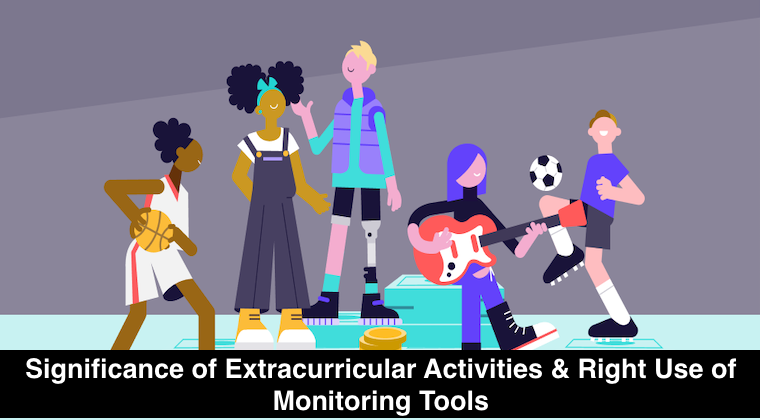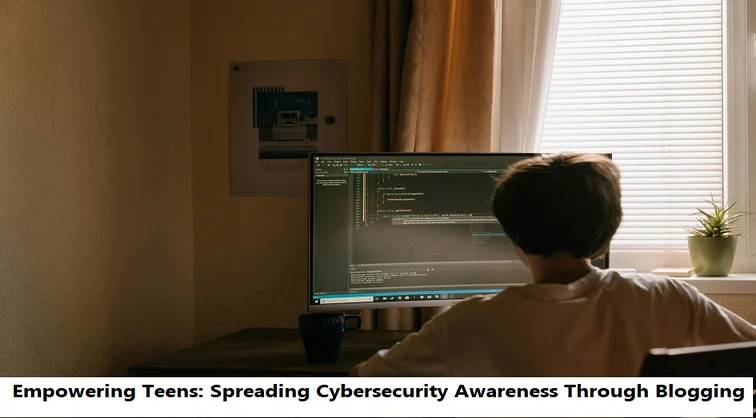+1 845 259 2974 (11 a.m to 7 p.m CST)
Significance of Extracurricular Activities & Right Use of Monitoring Tools

In today's fast-paced digital age, where screens are an inseparable part of our daily lives, striking a balance for our children between digital interaction and real-world experiences becomes essential. Where our children are learning a lot from technology, we cannot deny the significance of extracurricular activities. Such activities have become extinct in our kids’ lives because of their addiction to digital media.
They don’t know what they want and what is best for them, but they do know that maximum use of digital media. They can stick to their phone screens all day every day. In the past, parents used to worry about their kids not coming home and playing outside for too long. But now, today’s kids have even made their friends online and they hardly see anyone in person unless it is very important.
This is when parents need to wake up and do something. Before their kids grow up like this, they need to use monitoring tools to make sure that the kids are getting enough outside time for their better mental and physical health. It is all about striking the balance between the digital media and the real world.
The Undeniable Benefits of Extracurricular Activities
For those who are still thinking about whether they should do something for the betterment of their kids or not, this is a reminder that extracurricular activities are indeed very necessary and useful. The significance of outdoor games is unmatched, and it is required for your kids’ better growth.
So, here are some of the undeniable benefits of extracurricular activities:
Fostering Holistic Development
- Emotional Growth: Engaging in group activities helps kids understand teamwork, patience, and empathy.
- Physical Fitness: Sports, dance, and other physical activities enhance stamina, strength, and flexibility.
- Cognitive Skills: Chess, debate clubs, or math competitions enhance logical thinking and critical reasoning.
Encouraging Social Interactions
- Building friendships and understanding diverse perspectives.
- Learning collaboration, leadership, and effective communication.
Developing New Skills and Talents
- Discovering and honing hidden talents, from arts to sports to technology.
- Building confidence and a sense of accomplishment.
Providing Stress Relief
- Serving as a break from academic rigors.
- Encouraging creativity, relaxation, and fun.
With such amazing benefits of extracurricular activities, your kids ought to enjoy that. You need to make your kids understand that balance is the key to a better life.
Screen Time: The Double-Edged Sword
While technology offers an array of educational tools and entertainment, excessive screen time has its downsides. We can see how our kids are making their lives around digital media and they don’t care if they have any real outdoor activities. This is where you need to understand how screen time is affecting their minds and body, and how it is crucial to keep it in check.
Physical Health Impacts
If your kid is not getting enough outdoor time, and is stuck to the screen, this is how their health can get affected:
- Obesity: Children often engage in sedentary behavior while using screens, which leads to reduced physical activity. This inactive lifestyle, coupled with snacking habits during screen time, contributes to obesity.
- Vision Problems: Prolonged exposure to screens can result in digital eye strain, characterized by dry eyes, blurred vision, and headaches. Over time, this can potentially lead to more severe vision problems.
- Sleep Disturbances: The blue light emitted by screens interferes with melatonin production, the hormone responsible for sleep regulation. This can lead to difficulties in falling asleep and fragmented sleep patterns.
- Reduced Motor Skills Development: Children, especially in their formative years, need physical activities to develop essential motor skills. Overreliance on screens impedes this development.
Mental Health Impacts
When using too much digital media, there are many things that can go wrong with the mental health of kids. Here are some of the most common affects:
- Reduced Social Skills: Excessive screen time often translates to reduced face-to-face interactions, hampering the development of essential social skills in children.
- Feelings of Isolation: Overindulgence in virtual worlds can make children feel isolated, leading to feelings of loneliness and depression.
- Attention and Focus Issues: Constant stimulus from rapid-changing content on screens can reduce a child's attention span and ability to focus on single tasks.
- Over-reliance on Digital Gratification: Regular instant gratification from games or social media can lead to reduced patience levels and an increased need for instant rewards in real-world scenarios.
Monitoring Tools: Striking the Balance
Parents can either sit and watch their kids deteriorate their mental and physical health, or they can get help from a good monitoring tool to make sure their kids get appropriate screen time and manage to enjoy extracurricular activities as well. Here is how you can use monitoring tools for this purpose:
Setting Healthy Boundaries
- Scheduled Screen Time: Allocate specific hours for digital interaction. Turn off the internet or their screens after a certain time interval every day.
- Breaks are Vital: Encourage short breaks during prolonged screen usage. Make them eat, do any chores, or anything that could distract them from their screens.
Use Advanced Monitoring Tools
- Activity Trackers: Understand which apps or websites captivate your child's attention. What are they doing on the phone all day, or what sort of people are they talking to.
- Set Limitations: Use parental controls to set time limits for certain applications or games. You can use the web filtration feature where you can block certain websites that are not appropriate for the kids.
- Filtered Content: Ensure that the content accessed is age appropriate.
Encourage Outdoor Play Over Screen Play
- Active Participation: Engage in outdoor activities with your kids, making it a family endeavor.
- Provide Alternatives: Invest in board games, art supplies, or sports equipment.
Educate & Communicate
- Discuss the pros and cons of excessive screen time.
- Share stories or examples that highlight the value of real-world experiences over virtual ones.
While the digital world offers limitless possibilities, it's essential not to sideline the multifaceted benefits of extracurricular activities. By employing monitoring tools and setting boundaries, parents can ensure their children relish the best of both worlds.





















